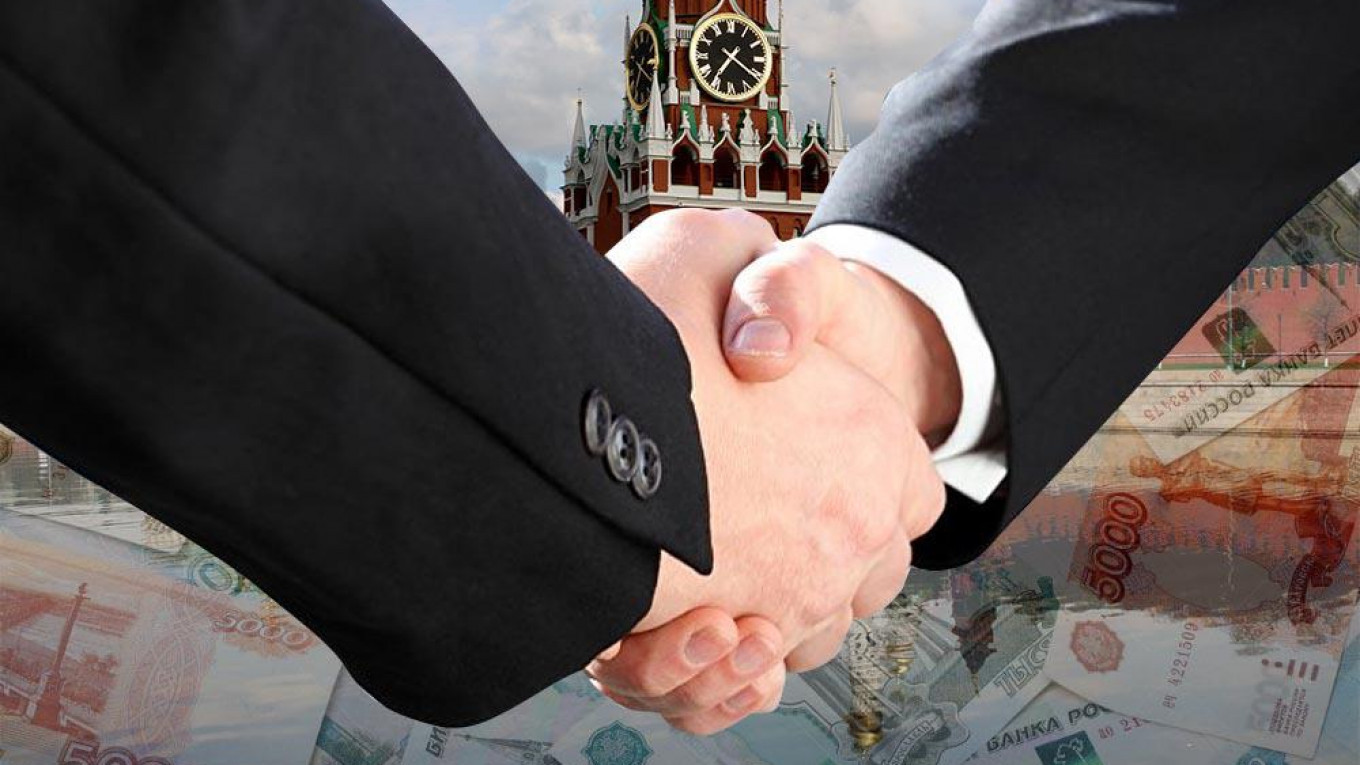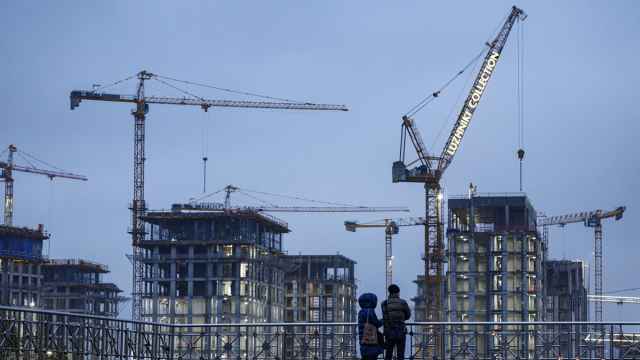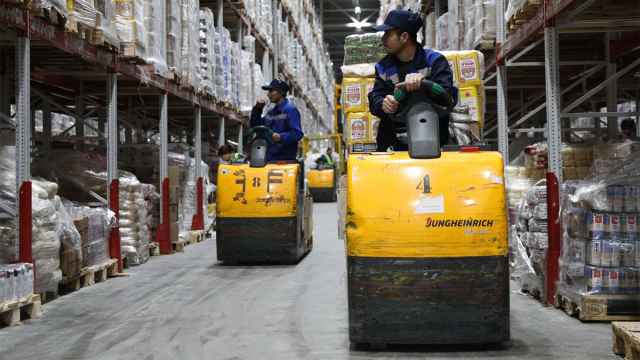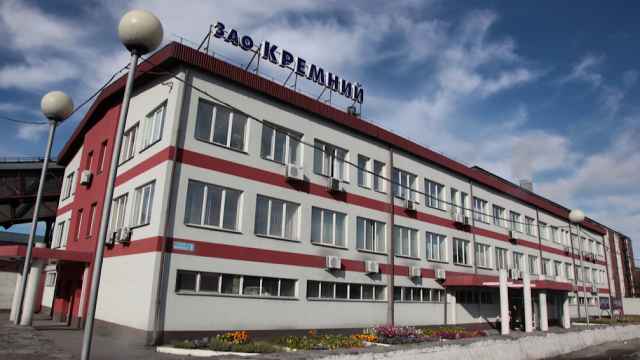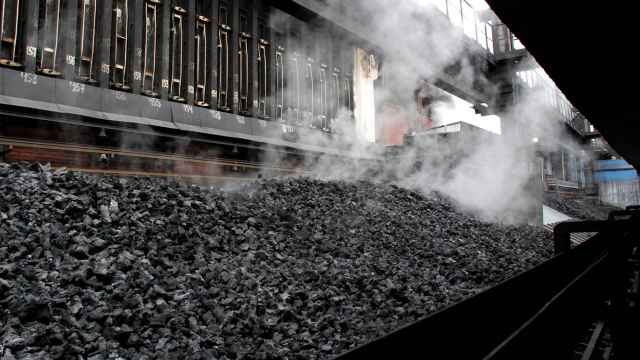2019 was an impressive year in the Russian business world.
The Russian stock market was one of the best performing anywhere in the world — up more than 40% in dollar terms and setting new record highs in the process.
Corporate profits soared — rising 12% and on track to pass the landmark 15 trillion ruble mark ($340 billion).
“Russia is a profitable place to do business,” Alexis Rodzianko, President of the American Chamber of Commerce in Russia said. “The message I consistently hear is that Russia beats China and Europe on a profitability basis.”
As a share of GDP Russia’s corporate profits come in around 14% — more than twice the level in China and compared with 8.5% in the United States.
A recent survey of chief financial officers by Deloitte showed businesses are expecting more of the same in 2020. Optimism among those in charge of the company accounts is at its second highest level since the 2014 crisis, seven in 10 expect their firm’s revenues to increase in 2020, most are planning to boost pay for their staff, hiring expectations are at their highest in five years and numbers of those reporting uncertainty or nervousness for the future have dropped drastically over the last 18 months.
Online retail potential
E-commerce in particular is seen as a source of untapped potential and future growth. The online retail industry is expanding by more than 25% a year, while the number of orders at market leaders Wildberries and Ozon is doubling every 12 months.
Still, Russia is playing catch-up, with under 5% of retail sales made online, compared with 12% in the U.S. and almost 20% in the U.K.
“E-commerce penetration is still amongst the lowest levels in developing countries and offers great opportunity for new market entries to disrupt,” said Paul Cushion, customer advisory director at KPMG.
The current market leader, Wildberries, controls almost one-third of the market — a dominance which parachuted founder Tatyana Bakalchuk into the Forbes list in 2019 as Russia’s second female billionaire. But Russia’s largest tech companies, Yandex and Mail.Ru, alongside state-owned bank Sberbank are making serious investments in this space, such as Mail.Ru’s joint venture with Chinese online giant Alibaba.
With such potential, Russia’s online retail sector could lead a mini-revival of European foreign direct investment (FDI) into Russia in 2020, said Lilit Gevorgyan, principal economist for Europe and CIS at IHS Markit, who predicts “renewed interest among some European strategic investors, in a reversal from the more cautious approach adopted after 2014.”
Green energy catch-up
Another area where Russia lags major economies is in green energy. Despite its vast resources and what the International Renewable Energy Agency has highlighted as Russia’s long history of successful energy projects, most of Russia’s clean energy comes from Soviet-era hydro plants, and President Putin is famously sceptical about wind and solar power. However, Chris Weafer of Macro Advisory expects “a greater debate over renewable energy in 2020, with Russia becoming more serious about developing this part of the energy portfolio.”
Most believe a serious green revolution is at least a few years off — especially after heavy lobbying from the hydrocarbon sector killed-off tentative plans for stricter emissions quotas and monitoring — but still the shift to a lower-carbon economy beyond Russia’s borders could have a greater impact inside Russia than ever before.
For instance, Russian firms have a lot of potential to capitalize on higher demand for metals used in manufacturing electric vehicles, wind turbines and super batteries, Apurva Sanghi, lead Russia economist at the World Bank said.
Both the wind power market — forecast to grow at a rate of 8% a year by Mordor Intelligence — and the electric vehicles industry — which Deutsche Bank expects to hit 25 million units a year by 2030 — are fast-growing sectors which need metals that Russia has in abundance.
“Palladium is essential to reducing emissions from cars. Russia is the single-biggest producer in the world,” said Saxo Bank’s Steen Jakobsen. “With governments in the EU falling over themselves to introduce subsidies for low-emissions vehicles, the German car industry will be knocking on the door of companies like [Russia’s] Nornickel,” one of the world’s largest producers of nickel, palladium, copper and platinum.
Weafer also sees Russia moving forward with “firm proposals to develop its own electric vehicle industry” — building on the planned launch of the country’s first ever domestically-produced electric car.
Unsurprisingly, as the government starts to boost investment after half a decade of austerity, sectors connected to the planned National Projects infrastructure drive are also expecting a fruitful 2020.
According to Deloitte’s CFO survey, transport, construction and logistics firms were the most optimistic for the year ahead. Oil and gas directors were also in good spirits, buoyed by stable oil prices and flagship new pipeline projects to Europe and China. Domestic firms in sectors under sanctions, like pharmaceuticals, were also confident of growth in 2020.
Beneath the optimism
However, scratch the surface and the optimism and opportunities quickly brush up against a not insignificant set of challenges.
While business confidence is approaching its highest levels of the sanctions era, Deloitte’s Ekaterina Trofimova, who authored the CFO study said: “If we look at strategies, and what Russian companies have been doing, it’s not very positive. There are a lot of risks and concerns, and businesses still aren’t sure about their futures. Companies are more and more reserved.”
For instance, cost control and cost reduction were named as the top two strategies for increasing revenue in 2020, ahead of launching new products or improving services.
Businesses also reported that plans for geographical expansion or partnering with foreign companies have declined compared with this time last year.
“The risk of a decline in domestic demand continues to worry businesses — most of that is undoubtedly connected with the economic slowdown, the VAT increase, increase in the retirement age, the trade embargo [sanctions], and other trends such as the multi-year decrease in consumer income,” the report said.
This conservatism is particularly evident when it comes to investment. Russia’s corporate balance sheets are in their strongest position in years, but instead of increasing investments into research, innovation, development or expansion, companies have ramped-up dividend payments to record-high levels, economists highlight.
“We had one of the highest levels of dividend payments by Russian companies,” said Trofimova. “We know that these dividend pay-outs are effectively cash-outs that reflect the lack of decent investment opportunities. Companies still see very limited opportunities for new business, or M&A [mergers and acquisitions] activity. They’re consolidating and optimizing, building protection, but not really in an expansion mood.”
Old challenges
An unresolved familiar set of problems — including government interference in private companies and an apparent lack of protections for investors — also lingers over the business community as bosses return from New Year breaks.
The Baring Vostok case remains unresolved. With star U.S. investor Michael Calvey still under house arrest and three of his Russian colleagues in jail, other instances of criminalization of corporate disputes also picked up in 2019, and high-profile arrests have undermined the government’s attempts to woo rich Russians to invest in their home country through capital amnesty programs.
“As the 2020s approach Russia is caught between needing to find new growth drivers to spur moribund economic growth, and a political economy set up to protect the vested interests of established players,” said Maplecroft’s McDowell.
Aside from the wrangling over green energy and climate change, this conflict appears particularly stark in the technology space.
“More restrictive conditions for the Russian internet and technology space will be a major trend in 2020,” Zach Witlin of Eurasia Group told The Moscow Times. “Businesses will need to accept that the state is setting more red lines for the internet and tech space, and authorities expect greater compliance with regulation. Local industry might hope that alongside tougher regulation, National Projects investment into the digital economy can give the sector a boost. But they likely don’t expect that support to come quickly, efficiently, or on their terms.”
The 13-month negotiations between the Kremlin and Yandex over the future of the Russian tech giant, culminating in a massive corporate restructure, was a recent demonstration of the level of energy and resources Moscow has at its disposal for managing the corporate tech world.
Slow change
That business associations and investors are still raising the kind of concerns that were prevalent at the start of 2000 or 2010 — criminalization of corporate disputes, bloated bureaucracy, government interference, outdated regulations, weak investor protections, a politicized judiciary — shows that change is a slow process in Russia.
“In terms of the composition of GDP, it’s interesting to compare Russian GDP now with the situation 100 or 150 years ago,” said Deloitte’s Trofimova. “Interestingly, we haven’t really progressed much. Industries have changed, but one of the problems is that the service industry is really weak.”
Surveys also reveal strong dissatisfaction with the modern business climate among Russia’s entrepreneurs. A PwC poll found 52% of business owners think it was easier to do business in the turbulent 1990s than it is today. Those that were starting their careers back then tended to disagree with younger executives, but the notion that Russia is not for the faint-hearted has persisted.
Stuart Lawson, a veteran British banker who came to Russia in the 1990s and has been president of Citibank, CEO of HSBC and a senior adviser for consultants EY offered a dose of perspective.
“When it comes to Russia, I like to say: it’s never as bad as it feels, but never as good as you hope,” he said.
A Message from The Moscow Times:
Dear readers,
We are facing unprecedented challenges. Russia's Prosecutor General's Office has designated The Moscow Times as an "undesirable" organization, criminalizing our work and putting our staff at risk of prosecution. This follows our earlier unjust labeling as a "foreign agent."
These actions are direct attempts to silence independent journalism in Russia. The authorities claim our work "discredits the decisions of the Russian leadership." We see things differently: we strive to provide accurate, unbiased reporting on Russia.
We, the journalists of The Moscow Times, refuse to be silenced. But to continue our work, we need your help.
Your support, no matter how small, makes a world of difference. If you can, please support us monthly starting from just $2. It's quick to set up, and every contribution makes a significant impact.
By supporting The Moscow Times, you're defending open, independent journalism in the face of repression. Thank you for standing with us.
Remind me later.



